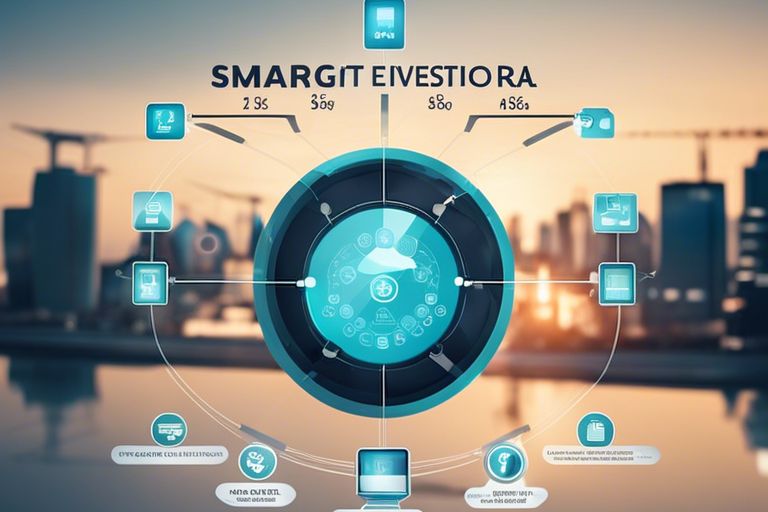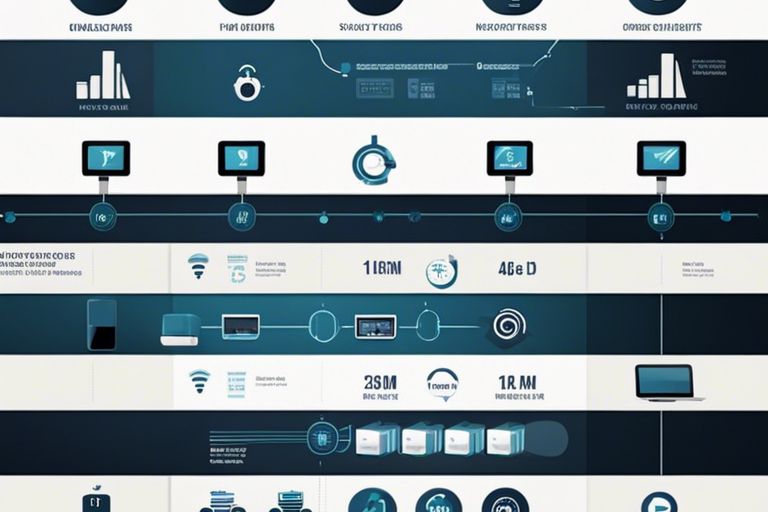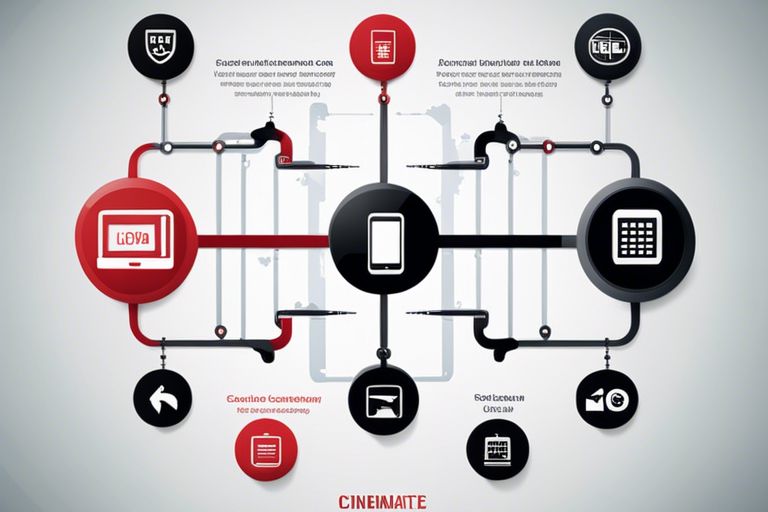What Is Endpoint Protection And Why It’s Critical For Cyber Security
You need to understand that endpoint protection is a vital component of your cyber security strategy. This technology...

It’s undeniable that smart devices have revolutionized the way business networks operate and communicate. These devices, ranging from smartphones to tablets and IoT gadgets, have become integral components in streamlining operations, enhancing productivity, and fostering seamless collaboration among employees. As businesses strive to stay competitive in today’s digital landscape, the adoption of smart devices has become more than just a convenience – it’s a necessity. This blog post investigates into the pivotal role that smart devices play in shaping the evolution of business networks and the key factors driving this transformative shift.
To understand the evolving landscape of business networks, we must first probe into smart devices. These interconnected gadgets are revolutionizing the way we operate in the digital age. For a detailed look at how smart devices are empowering business networks, check out Empowering Smart Devices Constructing Networks for the Internet of Everything.
An overview of smart devices reveals a vast array of interconnected tools that can communicate with each other seamlessly. These devices range from smartphones and tablets to sensors and wearables, all designed to collect, process, and transmit data in real-time.
An exploration into the rise of the Internet of Things (IoT) showcases how smart devices are reshaping the business landscape. This interconnected web of devices enables businesses to gather valuable insights, automate processes, and enhance decision-making capabilities.
For instance, companies can now monitor energy consumption in real-time, optimize supply chain operations, and personalize customer experiences with the help of IoT devices. This level of connectivity and data exchange is propelling business networks into a new era of efficiency and innovation.
For businesses, smart devices have revolutionized connectivity and communication within the network. With the advent of IoT devices and smart technology, employees can now connect seamlessly with each other and access data from anywhere in the world. This enhanced connectivity has streamlined business operations and improved efficiency.
Connectivity has enabled real-time data transfer and analytics in business networks. With smart devices constantly collecting and transmitting data, organizations can make informed decisions on the spot. This capability allows businesses to react quickly to market changes, identify trends, and optimize processes in real time.
Once again, the integration of smart devices into business networks poses several challenges that organizations need to address to maximize their benefits and minimize risks.
Security is a major concern when it comes to integrating smart devices into business networks. These devices can be vulnerable to cyber threats, making them potential entry points for hackers to access sensitive information or disrupt operations. It is vital for companies to implement robust security measures, such as encryption, access controls, and regular software updates, to protect their networks from potential breaches.
One of the key factors influencing the successful integration of smart devices is the adoption and implementation strategy employed by organizations. This involves not only selecting the right devices but also ensuring they are seamlessly integrated into existing network infrastructure and workflows. Companies need to carefully plan and execute their adoption strategy to reap the full benefits of smart devices in enhancing operational efficiency and decision-making processes.

Predictive maintenance and automation are two key trends that are shaping the future of business networks. Predictive maintenance involves using smart devices to monitor the condition of equipment and predict when maintenance is needed, thereby reducing downtime and increasing efficiency. Automation, on the other hand, enables tasks to be performed without human intervention, resulting in cost savings and improved productivity.
Future businesses will witness a significant impact from the integration of AI and machine learning in smart devices and business networks. These technologies will revolutionize the way businesses operate by enabling them to make data-driven decisions, automate complex tasks, and enhance customer experiences. Plus, they will enable businesses to analyze vast amounts of data in real-time, identifying trends and patterns that humans may overlook.

Conclusively, smart devices are pivotal in the evolution of business networks, ushering in an era of interconnectedness and efficiency. These devices enhance communication, data collection, and automation, resulting in streamlined operations and improved decision-making processes. As the Internet of Everything continues to expand, businesses will increasingly rely on smart devices to stay competitive and meet the demands of the digital age. For further insights on the impact of smart things on business networks, refer to The Internet of Everything: Smart things and their impact on ….
A: Smart devices play a crucial role in the evolution of business networks by enabling seamless connectivity, improved communication, and enhanced productivity. These devices allow employees to stay connected anytime, anywhere, and collaborate effectively, leading to increased efficiency and agility in business operations.
A: Smart devices facilitate remote work by providing employees with the tools they need to work from any location. With features like mobile apps, cloud storage, and video conferencing capabilities, smart devices empower remote workers to stay productive and connected to the business network, fostering a flexible and scalable work environment.
A: While smart devices offer numerous benefits, they also present security challenges for business networks. Issues such as data breaches, malware attacks, and unauthorized access can arise if smart devices are not properly secured. It is crucial for businesses to implement robust security measures, such as encryption, authentication, and remote device management, to protect against potential threats and safeguard sensitive information.
You need to understand that endpoint protection is a vital component of your cyber security strategy. This technology...
You rely on robust cybersecurity measures to protect your business from evolving threats, and Endpoint Detection and...